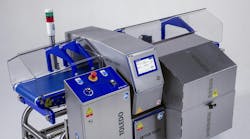Extensive research by the U.S. Centers for Disease Control and Prevention (CDC) has shown that outbreaks of foodborne illnesses linked to leafy vegetables and dairy products have increased over the past three years, while illnesses associated with eggs have declined.
Researchers at CDC analyzed all outbreaks reported through the electronic Foodborne Outbreak Reporting System (eFORS) in the period between 1998 and 2008. They defined outbreaks as instances of two or more cases of similar illnesses resulting from the consumption of a common food product. The authors believe that results from the analysis could help health officials design better and more effective prevention strategies.
Overall, CDC received reports of 13,405 foodborne disease outbreaks during the ten-year period, with 128 of them affecting more than one state. In total, these outbreaks resulted in 273,120 illnesses, 9,109 hospitalizations and 200 deaths. Of all the outbreaks analyzed, the cause was suspected or known in fewer than 8,000. About 45 percent of the outbreaks were linked to viruses and another 45 percent to bacteria, while nine percent were connected with chemical or toxic agents. Only one percent of the outbreaks were traced to parasites, CDC announced in a press statement.
Norovirus emerged as the most common cause of outbreaks, accounting for 43 percent of all cases, followed by Salmonella, with 18 percent. However, outbreaks linked to Salmonella appeared to be the most dangerous ones as they resulted in the largest number of hospitalizations. Salmonella was also the most deadly pathogen, followed by Listeria and Shiga toxin-producing Escherichia coli.
RELATED: US foodborne illness outbreaks plummet 40 percent
Looking at the settings associated with the start of an outbreak, CDC found that more than two in three outbreaks were linked to restaurants and delis. Less than one in 10 cases were associated with private homes, but those were the primary source in ciguatoxin outbreaks. Seven percent of outbreaks were linked to catering or banquet facilities.
Despite their efforts, researchers failed to trace all outbreaks to a specific food product. However, when the sources of illnesses were known, they most frequently were poultry (17 percent), leafy vegetables (13 percent), beef (12 percent) and fruits and nuts (11 percent).
In comparison to the first two years of the study period, the number of outbreaks linked to leafy vegetables was significantly higher over the last three years of the period. A similar pattern was also noticed for dairy product outbreaks, CDC announced. By contrast, the percentage of outbreaks linked to eggs fell from six percent during the first couple of years to just two percent in the last three years.
Although multistate outbreaks accounted for just one or two percent of all reported outbreaks, they led to a disproportionate number of deaths and hospitalizations compared to other types of outbreaks. Researchers expect that the number of multistate outbreaks will increase as molecular subtyping methods become more sophisticated and more accessible. Still, most of the outbreaks will remain local, which will require greater epidemiology and environmental health capacity at local and state levels, researchers concluded.



